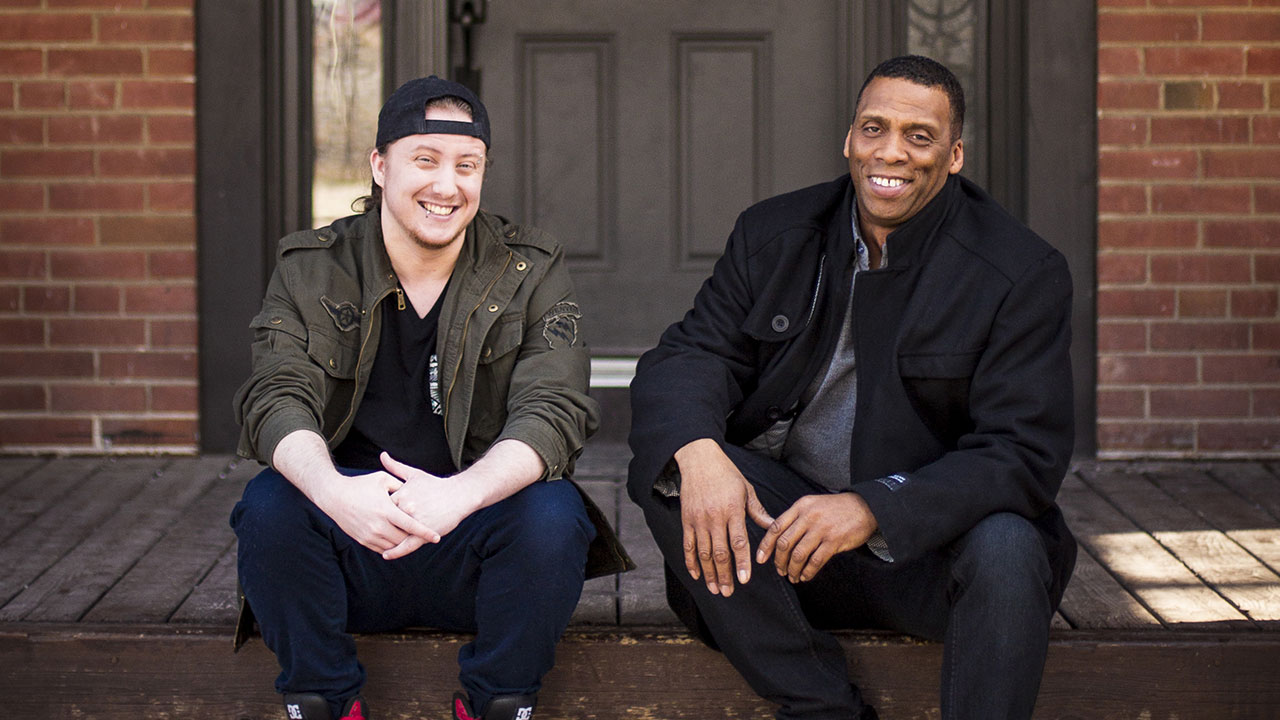
“I grew up in Canada and was able to take advantage of the opportunity that provided me. I went to school, got a post-secondary education, worked and had a family. I thought I did all of the right things. In 1989, my wife gave birth to our second child. I was a sales representative and moving up the corporate ladder. Everything was good. Then I came home one day and my wife said, ‘Married life is not for me. So long.’ This was a bit life-changing, but I had a good job and I wasn’t worried.
Then the recession hit and I was laid off. I thought I’d be able to find a job anywhere, but that didn’t happen. I ended up getting a job pumping gas. I was making $8.25 an hour, which worked out to just $1,000 per month. Rent at the time was $500 and change. The rest went to babysitting. At the end of the month I would think: “I’ve paid the babysitting costs. I’ve paid the rent. Now how do I feed and clothe these kids?” I didn’t have any money for groceries. At the time, the baby was just over three months old, and the older one was a toddler. I felt like I was failing them.
One of my neighbours took me down to a United Way-supported food bank. I had the kids with me, and I’ll always remember that little red logo. I was able to feed my children. I could get clothing for them. I honestly don’t know where my children and I would have been if it hadn’t been for United Way. For the longest time, I never understood what the phrase “the working poor” meant. I had always felt that these were people who didn’t want to work. After being placed in that situation, I realized that’s not always the case. The working poor are people, real people, who have to work two or three jobs because of circumstances that are beyond their control.
Once things turned around for me, I remembered that little red logo. I felt the need to give back, so donations come off my pay cheque on a weekly basis. And on top of my regular job, I own a small mobile entertainment company. Whenever United Way needs my services—if they’re having an outdoor event or a fundraiser—I’m there. The money goes to people like me.”
– Ken, United Way donor
“I should have been successful, but I wasn’t. When I was nine or 10, I was diagnosed with obsessive compulsive disorder (OCD). That led to other diagnoses: generalized anxiety and depression. Growing up, I was in the gifted program at school, but I got into shouting matches with my teachers. Things like that happened a lot. Teachers were constantly telling me to leave. Eventually, I did — I’m a high school dropout. I pretty much stopped going to school in Grade 10.
My first job was working at a fast food restaurant, where they viewed me as difficult because I wouldn’t take out the trash. My refusal to take out the trash was because of my OCD, which was germ-related and was very bad at that time. I would shower up to four times a day. I had little social life, which really hindered my growth as a person.
The OCD also made it difficult for me to get along with my family. I really love my parents. They helped me to find different doctors, but I felt like no one was listening to me. My depression was so bad that it manifested as suicidal thoughts. By the time I was 18, it was way too much for me. I had no money. I had no education. I ended up leaving home. I would stay in the hospital for a 72-hour hold, or I’d go to a homeless shelter. I didn’t want to go home.
Eventually, I was connected with a social worker through a program that’s supported by United Way. The social worker helped me get provincial disability support and access a range of services, including counselling, housing, peer support and skill development that made me feel more hopeful about my future.
Today, I volunteer with youth as a peer support worker at the agency. It really helps me to be able to help others. I no longer feel like a burden on society. I still work with my social worker one-on-one. We’ve looked at finding work for me and applying to schools as a mature student. It’s nice to know that people care about me and want me to succeed. That’s pretty powerful.
– AJ, United Way program participant

